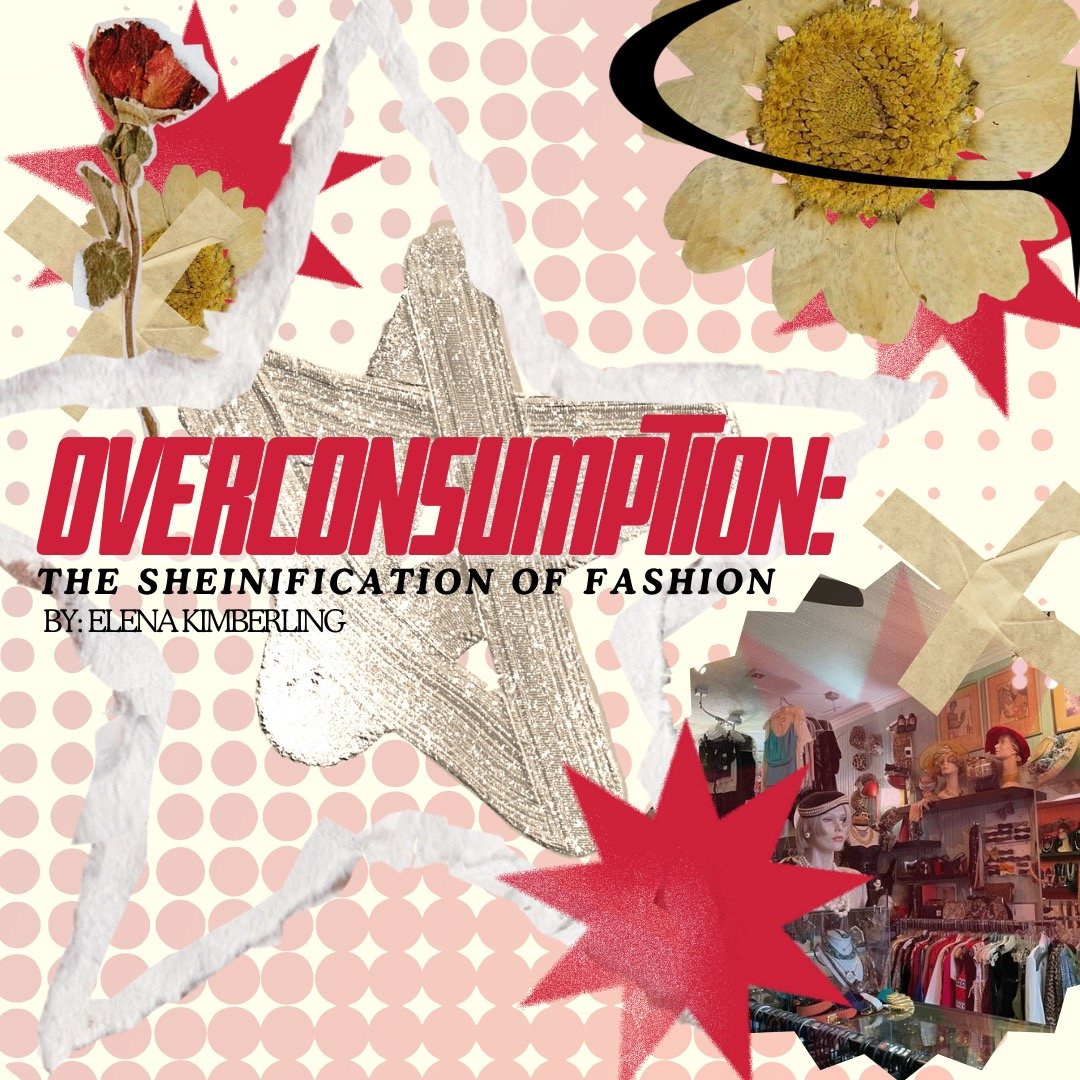Social media has greatly accelerated our trend cycle, making the newest fashion trends easily accessible through the hundreds of videos we see each day. As Bella Hadid sits on the for you page with a beautiful new outfit, costing hundreds of dollars, people become infatuated; they form a distinct need to look like their favorite celebrity, a parasocial feeling if you will. This new fashion trend starts to spread through social media, the need grows: the need to fit in and be respected. That’s where fast fashion dupes come in; anyone has the chance to be a “fashionista” at cheap prices. The House of Sunny dresses can sit in your closet without spending an arm and a leg on them. And, because the clothing is so cheap, it quickly loses its value and it no longer matters if the shirt gets thrown away because it only costs $5, less than a cup of coffee. As such, a brand that is incredibly guilty of driving this behavior that may come to many of your minds is: Shein. While Shein is a prominent fast fashion brand, it is also important to recognize that unethical fashion practices are not limited to the price of the clothing themselves, with brands like Zara, H&M, Gap, Old Navy, Urban Outfitters, and Free People promoting these cyclical fashion trends as well. Fast fashion is being consumed all around us, but for today, I will be focusing specifically on Shein.
Because the clothing is so cheap, every single fashion trend can be bought into, and when everyone starts to dress the same way, fashion trends change and adapt. The trend cycle has accelerated, a new exciting trend comes out and everyone jumps on it, ultimately making the mound of clothes higher and higher, filled with micro trends that quickly make their way to the landfill. We often look back at these micro-trends from a few years ago and cringe at our absolute non-fashionability, despite doing the same exact thing now. We cringe at the overuse of cow print while wearing oversized soccer jerseys with jorts.
I know this oversaturation of clothing is due to this need to fit in, by wearing clothing that isn’t trendy people quickly become judged. Fashion is in fact the means in which we present ourselves, and that may never change. But the trend cycle has just become so oversaturated to the point where it’s impossible to be up to date and in trend without constantly shopping. In the social state of the world we live in, keeping up to date with trend cycles improves your status.
A lot of people's arguments on why Shein is okay is because they aren’t the only fashion brand guilty of being unethical. Often using the phrase “there is no ethical consumption under capitalism,” which is true, but it’s obviously a range. There are options for clothing shopping that are much more ethical (the biggest one being underconsumption). Thrifting being another huge element, focusing on this circular fashion of clothing. But this love for Shein and lack of care for the way this purchase of fast fashion is affecting other people is ignorant. Not even mentioning the fact that the price of the clothing is often times cheaper than the price of the fabric itself. Some studies have demonstrated shein clothing containing over 20% lead, and I wouldn’t be surprised if other fast fashion brands had a similar fabric makeup.
This over-saturation is very evident when you visit Shein’s website, immediately bombarded with discount codes and sales to make these criminally low priced pieces of clothing even less. Then as you start to look through the items, there are thousands of clothing pieces, including duplicates for popular items made minutes after the piece rose to popularity. They release 700 to 1,000 new items each day, with 35,000 to 100,000 clothing items produced each day. The fashion industry is also responsible for 10% of carbon emission and makes up 35% of ocean pollution and every year 85% of all textiles end up in the landfill. As new pieces are churned out, old ones quickly get thrown away, ultimately creating constant waste.
I think the speed of our current trend cycle is ruining true fashion in its entirety. It doesn’t leave as big of a place for personal fashion as every article of clothing gets mass produced to the point of being overly accessible. It is deteriorating not only our individualism, but also the environment we live in. We need to prioritize a cycle of clothing that enforces repurposing and recycling. We need to value clothing for their longevity, rather than viewing them as how they can fit most into the trend cycle. We all can take part in over consumption in one way or another and it is time to be mindful, and bring real fashion back.

No Comments.